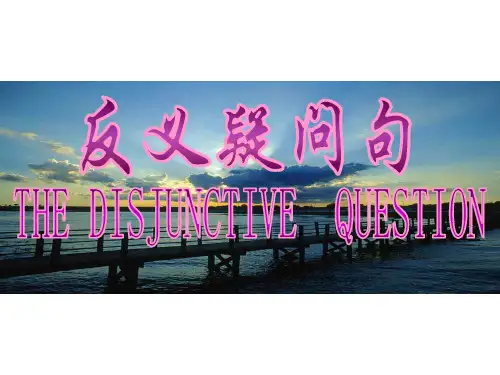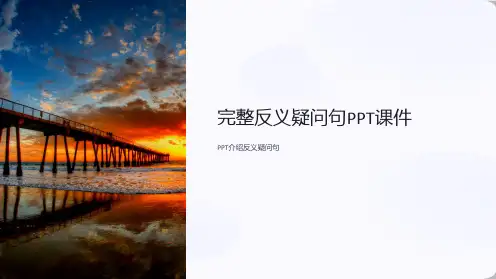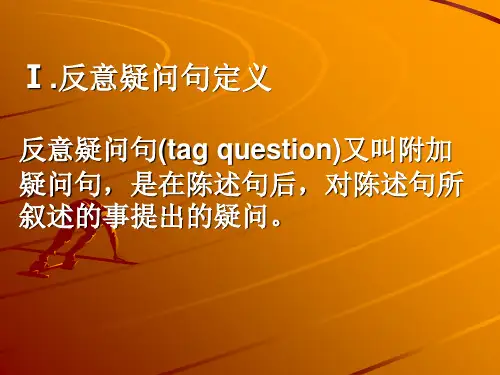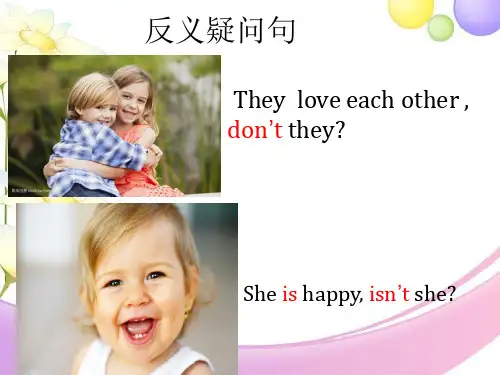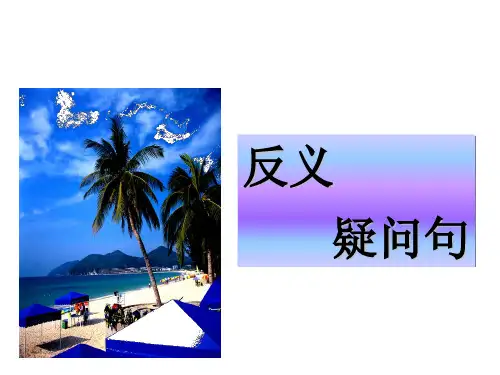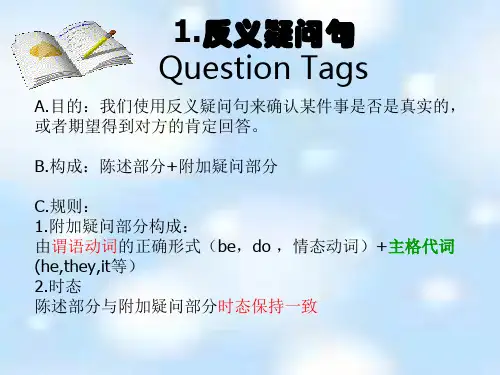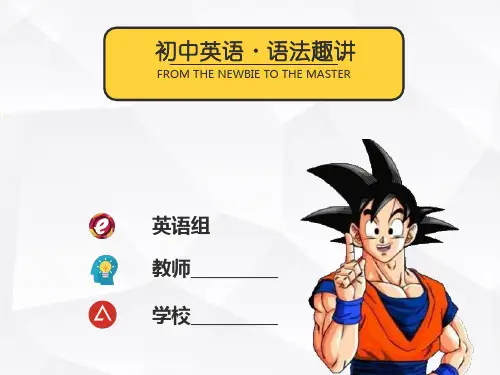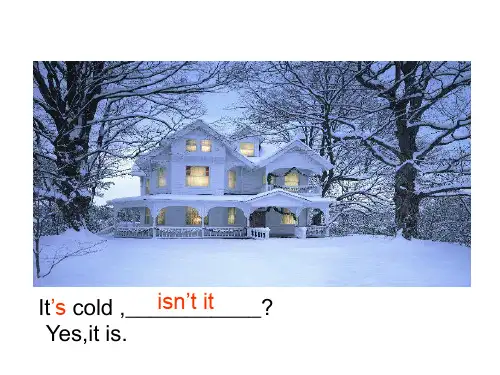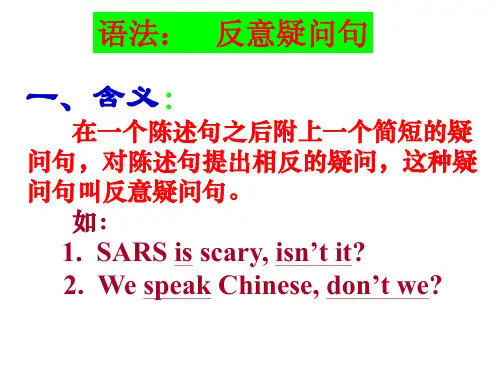Thank you
→ Is it ? → Isn’t it ?
Does he go to school by bike every day? → Does he ?
1. 陈述部分是I am 或 I’m 时,疑问部分用 aren’t I 2.陈述部分有no , never, few, little时,疑问部分用肯定 3.陈述部分主语是there, this, that , these, those时,疑 问部分用there , it ,they 4.陈述部分主语是everyone, everybody, someone, somebody, anybody, no one, nobody等时,疑问部分 用they, he;陈述部分是everything, something, nothing, anything时,疑问部分用 it 5.祈使句的反意疑问句用will you, 或 shall we 6.宾语从句中,以主句为准,但如果主语是第一人称且谓 语动词是think, believe等时,以从句为准
人教八年级下UNIT 10
语法讲解
Байду номын сангаас
反意疑问句
反意疑问句
构成: 构成: 陈述句,+ 陈述句,+ 简单问句 如果陈述句是肯定句,简单问句则用否定形式。 如果陈述句是肯定句,简单问句则用否定形式。 如果陈述句是否定句,简单问句则用肯定形式。 如果陈述句是否定句,简单问句则用肯定形式。 It is a nice day, isn’t it? It isn’t a nice day, is it? 简单问句的构成: 简单问句的构成: Is it a nice day? Isn’t it a nice day?
will there 11. There will be no rain tomorrow ,___________? did he 12. My father never went to Xi’an ,___________? can it 13. Nothing can stop him learning English ,_______? isn’t it 14. Something is wrong with your computer ,______? isn’t he 15. everyone is here ,___________? 16. Don’t be late for class ,___________? will you shall we 17. Let’s go to the cinema ,___________? will you 18. Let us go out for a walk ,___________?
